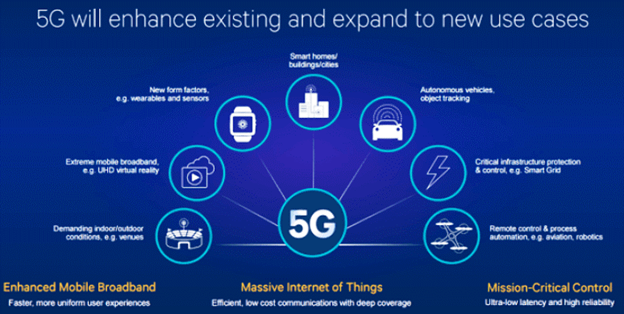A2102 Insights
Explore the latest trends and news on technology, lifestyle, and more.
5G Hype or Reality: What’s Next for Our Networks?
Uncover the truth behind 5G! Is it just hype or a game changer for our networks? Dive in to see what's next!
The Truth Behind 5G: Separating Hype from Reality
The rollout of 5G technology has sparked an intense debate among consumers, tech enthusiasts, and skeptics alike. While many hail it as the next evolutionary step in mobile connectivity, offering faster speeds and reduced latency, others raise concerns about safety and privacy. According to a report by the World Health Organization, there is currently no conclusive evidence that the radiation emitted by 5G networks has harmful health effects. However, this has not stopped speculation and fear surrounding the deployment of 5G infrastructure. It is essential to distinguish between fact and fiction as the 5G hype continues to grow.
On the technological front, 5G promises to revolutionize how we connect and interact with the world around us. Speeds up to 100 times faster than 4G are being touted, enabling innovations like smart cities, autonomous vehicles, and next-gen virtual reality experiences. Yet, the implementation of this technology is not without challenges. As outlined by Forbes, the infrastructure costs, regulatory hurdles, and the need for unprecedented coordination among various stakeholders represent significant barriers to widespread adoption. Thus, while the promises of 5G are enticing, the reality may be more complicated than the hype suggests.

5G and Beyond: What Innovations Should We Expect?
The advent of 5G technology has already begun to transform various sectors, and as we look towards the future, we can anticipate even more disruptive innovations. One of the most significant advancements expected beyond 5G is the implementation of 6G networks, which promise to deliver speeds up to 100 times faster than 5G. This increased speed will enhance real-time data processing, making technologies such as augmented reality (AR) and virtual reality (VR) more immersive than ever before. Additionally, innovations in edge computing will allow for quicker data transfer and reduced latency, thereby revolutionizing industries like healthcare, where remote surgeries and real-time patient monitoring could become routine.
Moreover, the fusion of 5G technology with Internet of Things (IoT) devices is expected to lead to improved connectivity and smarter cities. As outlined in an article by Forbes, we can expect a vast network of interconnected devices that will optimize urban infrastructure, manage traffic congestion, and enhance public safety. Furthermore, advancements in artificial intelligence (AI) alongside 5G will enable predictive analytics that can forecast demand and resource use, leading to more efficient energy consumption. Together, these innovations point towards a future where technology seamlessly integrates into our daily lives, creating a smarter and more connected world.
Is 5G Worth the Investment? Exploring the Pros and Cons
As the world continues to evolve into a more connected place, the rollout of 5G technology raises an important question: is it worth the investment? One of the most significant advantages of 5G is its ability to provide faster download and upload speeds compared to its predecessors. With speeds potentially reaching up to 10 Gbps, users can stream high-definition content with ease, reducing buffering and enhancing the overall experience. Additionally, this technology can support a larger number of devices simultaneously, making it a game-changer for homes and businesses alike. For more on the benefits of 5G, you can check sources like GSMA.
However, investing in 5G is not without its challenges and drawbacks. One major concern is the cost of infrastructure development, which can be quite substantial. Telecommunications companies must invest heavily in new equipment and technology to accommodate the 5G network, which may lead to higher fees for consumers in the long run. Additionally, there are ongoing debates regarding the health effects of 5G radiation, with some studies indicating potential risks. For a deeper dive into the concerns surrounding 5G, you can visit WHO.